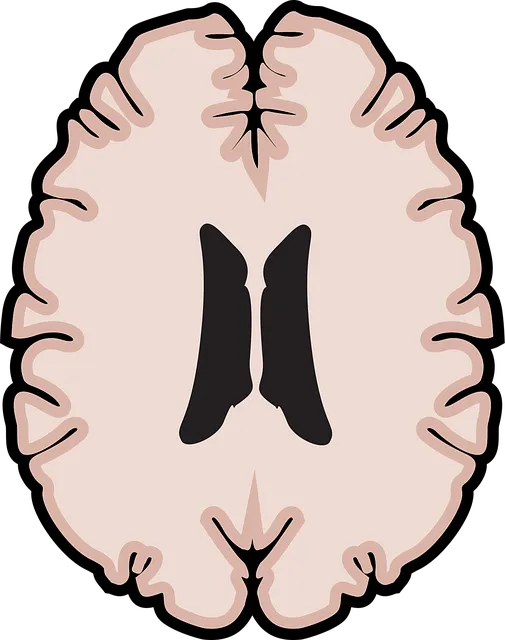Burnout among healthcare providers is a growing concern, impacting physical and mental well-being. Early recognition of signs like chronic exhaustion and cynicism is crucial for prevention. High workload, long hours, emotional demands, and systemic issues contribute to burnout. Organizations like Kaiser Permanente Norcal Castle Rock combat this through accessible mental health services, self-care promotion, supportive environments, and stigma reduction. They offer dedicated phone numbers for stress, anxiety, and depression support, empowering employees to prioritize well-being and deliver quality patient care. Evidence-based interventions include journaling, exercise guidance, communication strategies, mindfulness practices, and boundary setting, creating a holistic framework for sustainable mental health in overworked medical professionals.
Healthcare provider burnout is a growing concern, impacting both individual well-being and patient outcomes. This article explores comprehensive strategies to prevent burnout among healthcare workers, focusing on the essential role of organizational culture, evidence-based interventions, and self-care practices. We delve into the causes and signs, offering insights for healthcare organizations like Kaiser Permanente Norcal Castle Rock, which prioritizes mental health support through its phone number-based resources. By implementing these strategies, we aim to foster a healthier, more sustainable work environment.
- Understanding Burnout: Recognizing the Signs and Causes
- Creating a Supportive Work Environment: Strategies for Healthcare Organizations
- Evidence-Based Interventions for Mental Health and Well-being
- Integrating Mindfulness and Self-Care Practices in Daily Routines
- The Role of Access to Resources: A Case Study of Kaiser Permanente Norcal Castle Rock
Understanding Burnout: Recognizing the Signs and Causes

Burnout among healthcare providers is a growing concern, affecting both physical and mental well-being. Recognizing burnout early is crucial for effective prevention. Signs can include chronic exhaustion, detachment from work, reduced performance, and feelings of cynicism or negativity. These symptoms often stem from various causes within the complex healthcare environment. High workload, long hours, emotional demands, and systemic issues like administrative burdens or lack of support can contribute to provider burnout.
At organizations like Kaiser Permanente Norcal Castle Rock, mental health services play a vital role in addressing these challenges. Their phone numbers, easily accessible for employees, offer a safety net for those struggling with stress, anxiety, or depression related to work. Promoting self-care routines and fostering an environment that prioritizes mental wellness, along with reducing the stigma surrounding mental illness, are key strategies to combat burnout. These efforts ensure healthcare providers can maintain their well-being and continue offering quality patient care.
Creating a Supportive Work Environment: Strategies for Healthcare Organizations

Healthcare organizations play a pivotal role in preventing burnout among their providers by cultivating a supportive work environment. This begins with fostering an open and transparent culture where healthcare professionals feel comfortable discussing their well-being, including mental health concerns. Organizations like Kaiser Permanente Norcal Castle Rock have been pioneers in this space, offering accessible resources such as their dedicated mental health phone numbers to encourage early intervention and support.
Implementing regular team-building activities, stress management workshops, and self-awareness exercises can significantly enhance provider resilience. These initiatives not only promote work-life balance but also encourage open communication, ensuring that healthcare providers have the tools and resources needed to navigate challenging situations effectively. By prioritizing burnout prevention strategies for healthcare providers, organizations like Kaiser Permanente Norcal Castle Rock set an example for industry-wide positive change.
Evidence-Based Interventions for Mental Health and Well-being

Healthcare provider burnout is a growing concern, but evidence-based interventions offer hope for improvement. Organizations like Kaiser Permanente Norcal, with their Castle Rock mental health phone number, are leading the way in promoting mental wellness among healthcare workers. One effective strategy is Mental Wellness Journaling, which allows professionals to process their experiences and emotions in a safe, private space. This practice can enhance self-awareness, foster positive thinking, and provide valuable insights into stress triggers and coping mechanisms.
In addition to journaling, Exercise Guidance tailored for healthcare providers’ schedules and needs can significantly boost mental health. Even short bursts of physical activity throughout the day can reduce stress levels and improve overall well-being. Communication Strategies are another critical component. Open dialogue with colleagues, supervisors, and support systems can help alleviate feelings of isolation and encourage a sense of community within healthcare settings. These combined approaches create a holistic framework for preventing burnout and promoting sustainable mental health in overworked medical professionals.
Integrating Mindfulness and Self-Care Practices in Daily Routines

In today’s fast-paced healthcare environment, burnout is a significant concern for providers at Kaiser Permanente Norcal Castle Rock and similar organizations. One effective strategy to combat this issue lies in integrating mindfulness and self-care practices into daily routines. By incorporating techniques such as meditation, deep breathing exercises, and yoga, healthcare professionals can find moments of calm amidst the chaos. These practices not only promote relaxation but also enhance mental clarity and emotional resilience, enabling providers to better manage stress and anxiety relief.
In addition, self-care is a crucial component of preventing burnout. This involves setting boundaries, prioritizing sleep, engaging in enjoyable hobbies, and seeking support from colleagues or professional counselors. By adopting these mindfulness and self-care strategies, healthcare providers can foster better stress management and resilience building, ensuring they remain adept at delivering quality care to their patients.
The Role of Access to Resources: A Case Study of Kaiser Permanente Norcal Castle Rock

At Kaiser Permanente Norcal Castle Rock, access to resources plays a pivotal role in preventing healthcare provider burnout. This organization has recognized the importance of providing its staff with comprehensive support systems, including mental health services such as the Kaiser Permanente mental health phone number Norcal Castle Rock, which offers confidential counseling and referral services. By integrating these resources seamlessly into their operations, Kaiser Permanente ensures that providers have a dedicated outlet for stress relief, emotional support, and professional guidance when facing challenging situations.
Furthermore, the implementation of effective conflict resolution techniques and Trauma Support Services has significantly contributed to creating a healthier work environment. These initiatives promote open communication among staff members, foster empathy in handling sensitive patient cases, and provide tools to manage high-stress scenarios. Additionally, Kaiser Permanente Norcal Castle Rock’s Community Outreach Program encourages providers to engage with the local community, offering opportunities for meaningful connections that can enhance job satisfaction and a sense of purpose beyond clinical settings.
Healthcare provider burnout is a significant challenge, but by implementing evidence-based strategies, organizations like Kaiser Permanente Norcal Castle Rock can foster supportive work environments. Recognizing signs early and integrating mindfulness practices into daily routines are crucial steps. Access to resources, such as the mental health phone number provided by Kaiser Permanente, plays a vital role in preventing burnout and promoting well-being among healthcare workers. These initiatives ensure that professionals can thrive, providing quality care without succumbing to the pressures of their roles.






